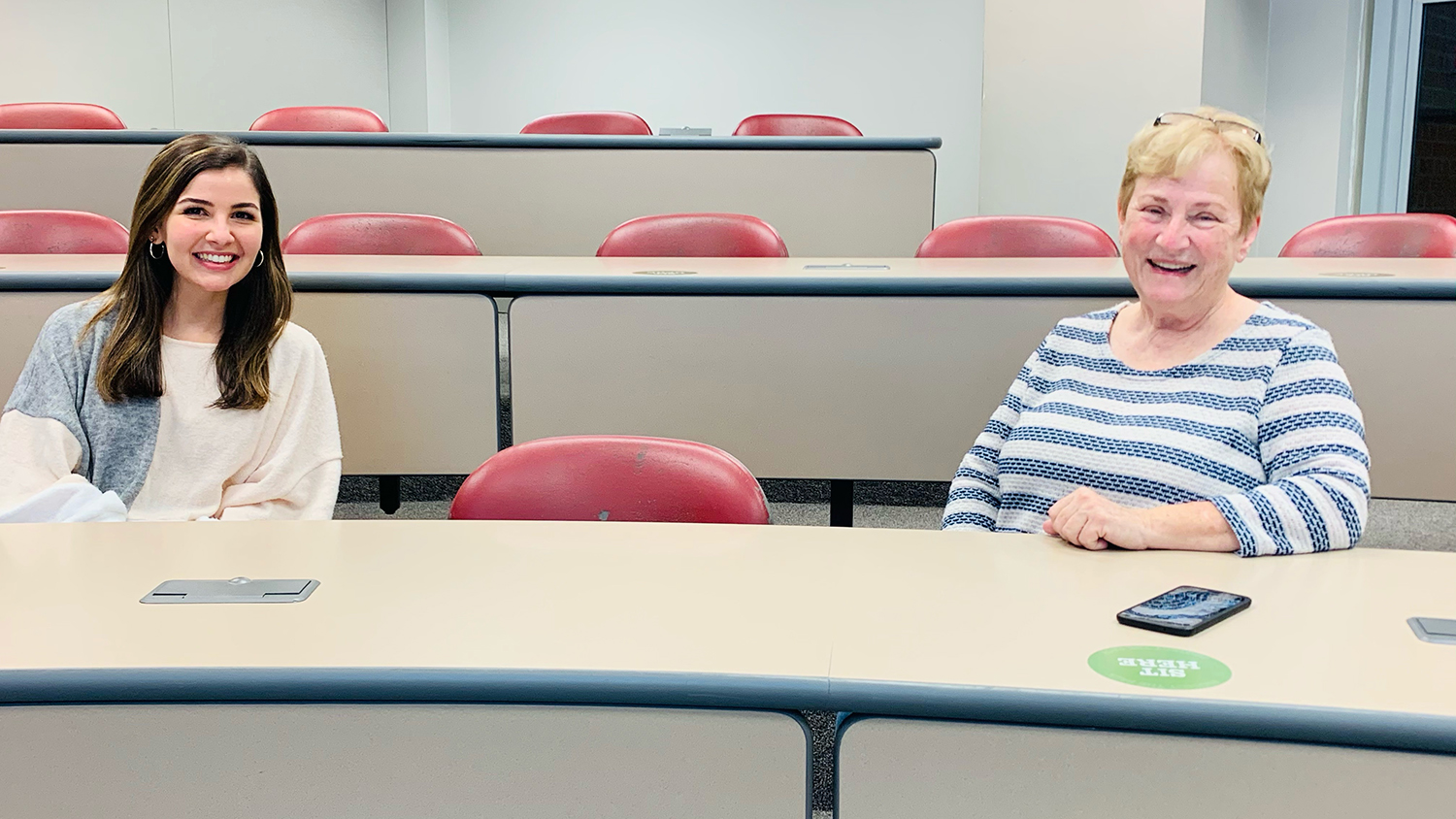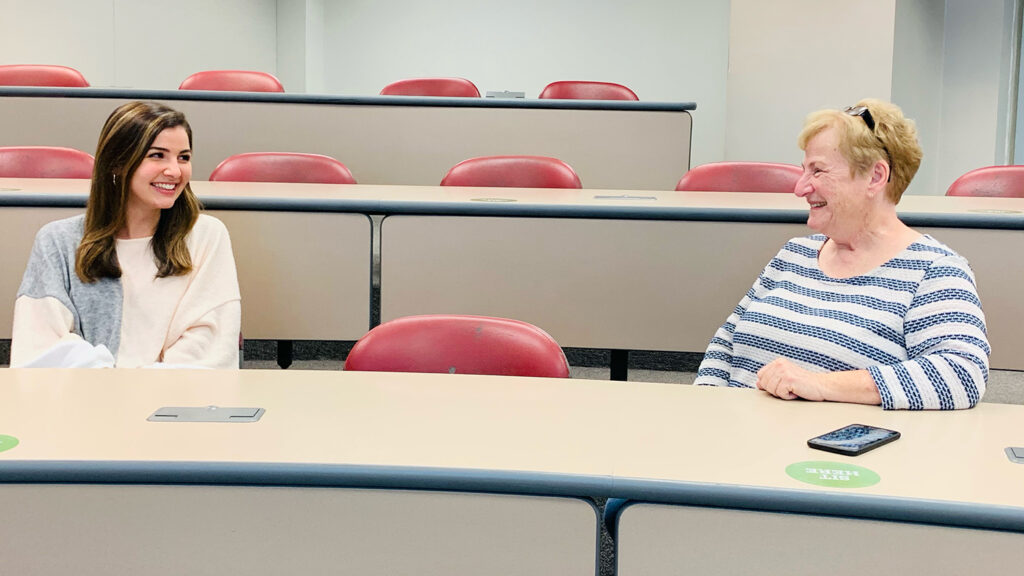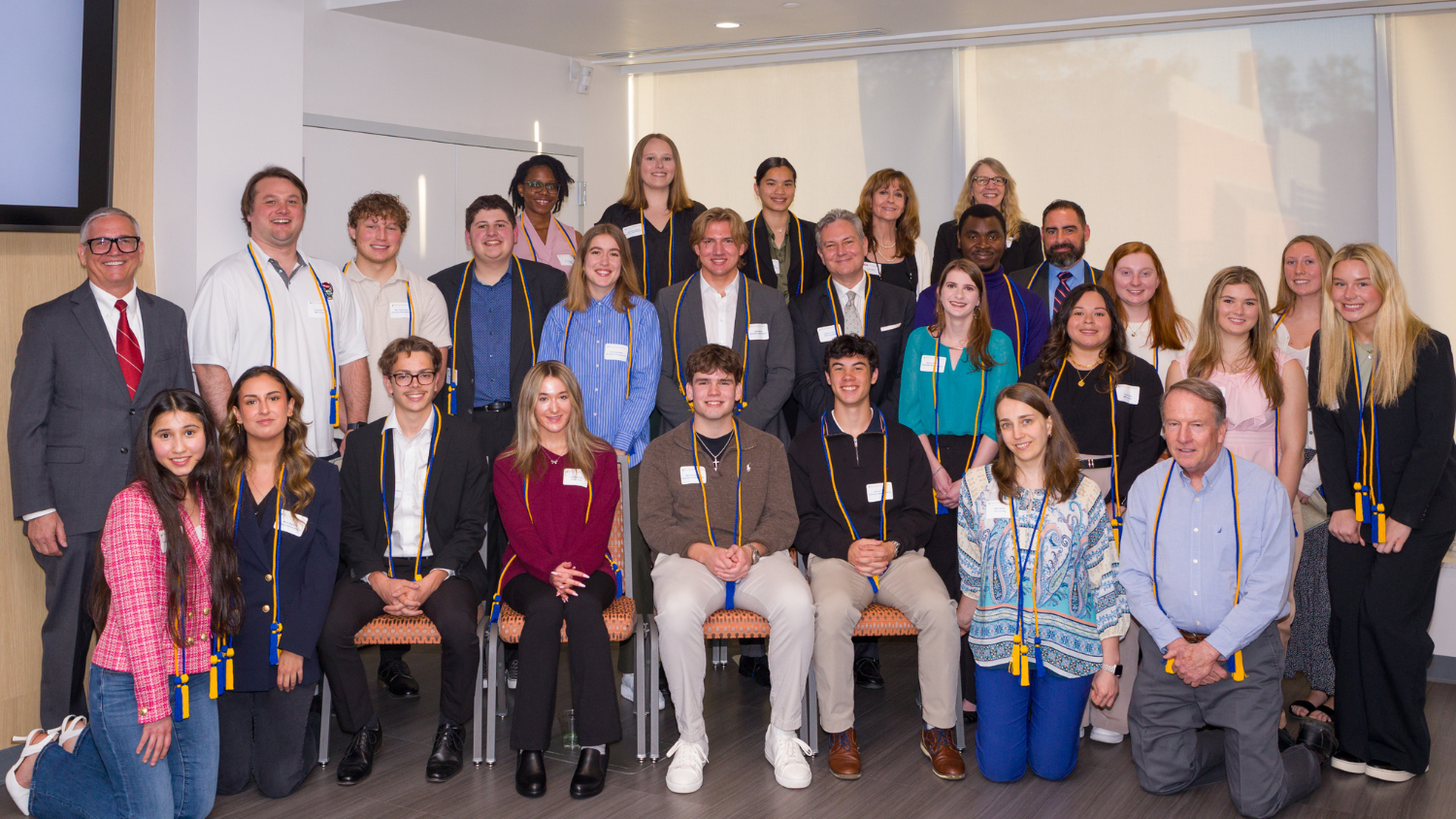Mentoring Through a Pandemic

As the director of the Jenkins Master of Accounting (MAC) program at the Poole College of Management, Scott Showalter is keenly aware of the havoc the COVID-19 pandemic has wreaked on the lives of the 140 students in the program.
“Many students have had a difficult time adjusting,” he acknowledged. “As classes go virtual, they struggle with social isolation and time management issues. Some seek career direction as jobs they thought they were going to get are no longer available. Others are dealing with family issues as they move back in with parents and grandparents.” At the end of the day, students are really just “looking for someone to talk to,” Showalter has realized.
As the pandemic created unusual levels of stress and uncertainty for MAC students, Showalter identified the need for reinforcements as he worked to prevent anyone from falling through the cracks. He asked his fellow MAC faculty members to formally mentor 10 to 15 students each so that every student had someone to turn to with questions or concerns. “My hope was that the mentors would help head off any issues before they compounded,” he explained. “Thankfully, the MAC faculty stepped up.”
Jennie Dirienzo, a professor of practice, brings years of mentoring experience to the table. Given her knack for creating rapport with the students in her classes, she is accustomed to mentoring several students at a time on an informal basis. “Students who come to my office hours typically ask questions about coursework that lead to questions about any number of topics, from navigating their job search to coping with very personal issues,” she shared.
Over the years, Dirienzo has helped the driven, ambitious students of the MAC program cope with a level of anxiety that has only increased during the COVID-19 pandemic. “I often speak with students who feel like they have bitten off more than they can chew,” she explained. “I can understand why they’re overwhelmed. If I would have had to take all my courses online, I don’t think I would have finished my degree. Then on top of the coursework, they are beginning jobs and internships virtually.”
While pursuing a rigorous graduate degree during a pandemic comes with a unique set of challenges, Dirienzo finds that the same tangible tools she offered before are as relevant as ever. “I still talk to students about things like managing projects efficiently, working well in groups and developing the confidence to speak up,” she said.

“Learning about the new MAC mentoring program on Orientation Day was a welcome surprise,” said Victoria Gervasi, a current MAC student. “Since high school, I’ve always made a point of finding at least one mentor,” she explained. “No one expects students to figure everything out alone. We always do better when we ask for help.”
Gervasi was thrilled when the mentoring program connected her with Dirienzo. “Jennie was one of the reasons I decided to go into tax accounting in the first place,” she said. “She was one of the first people I felt comfortable enough with to be honest about the stress I was experiencing.” As Gervasi struggled to balance the demands of the MAC program with recruiter meetings and job applications, she frequently turned to Dirienzo for advice about how to direct her time and energy.
According to Gervasi, Dirienzo played a pivotal role in guiding her next steps in the MAC program, helping her learn to balance priorities and make valuable industry connections. “Jennie is very motivational and solutions-oriented,” affirmed Gervasi. “She allows you to be vulnerable, but she doesn’t let you wallow.” At the beginning of the semester, Gervasi accepted a full-time job offer from EY. “Victoria has a great deal of potential,” affirmed Dirienzo. “It’s exciting to watch her come into her own.”
From Showalter’s perspective, the MAC mentoring program has lived up its purpose. “I know that students are meeting with their mentors because the students share highly positive feedback about their experiences with me,” he said.
As the world changes, we will continue the mentoring program to ensure that they continue to feel seen and supported.
Both formally and informally, Dirienzo plans to continue mentoring the students who turn to her for advice. “The most rewarding aspect of serving as a mentor is hearing from students after they graduate,” she expressed. “When they connect the decisions they’ve made and accomplishments they’ve achieved to our mentoring relationship, that is my version of making a difference. And if my colleagues and I can make a difference to even one student each semester, it is well worth the effort.”
- Categories:


